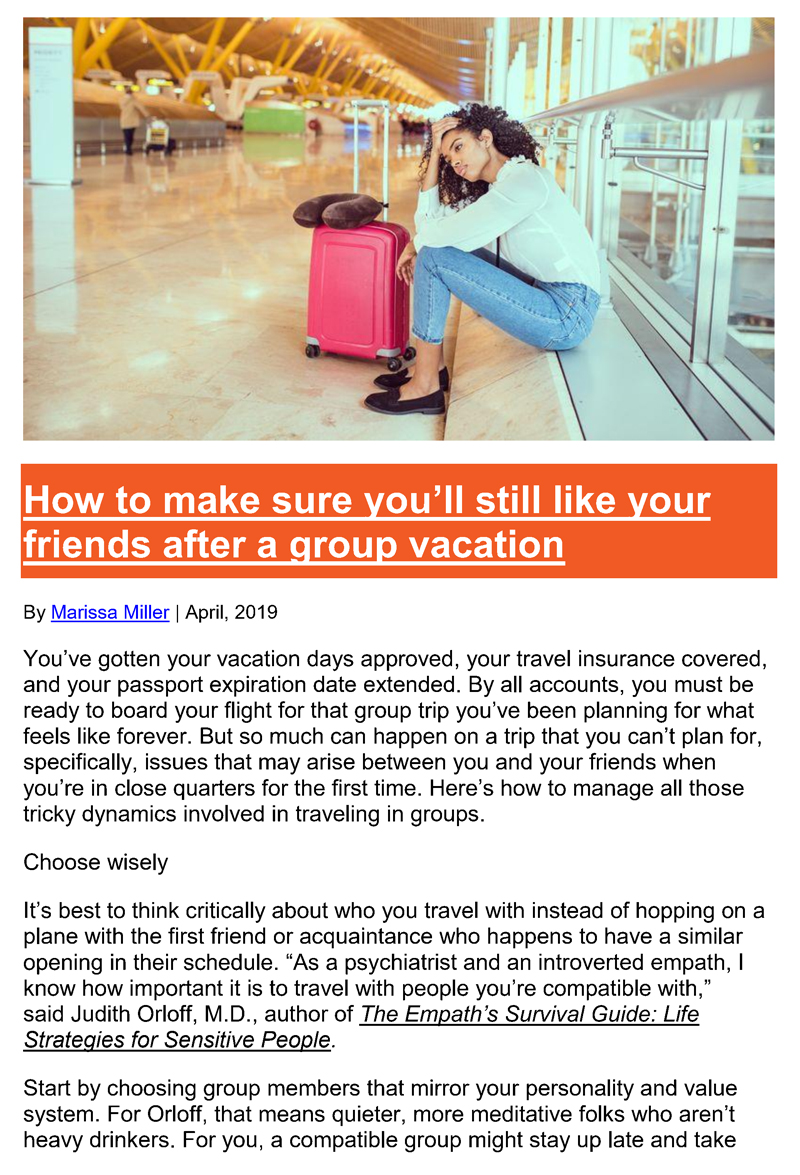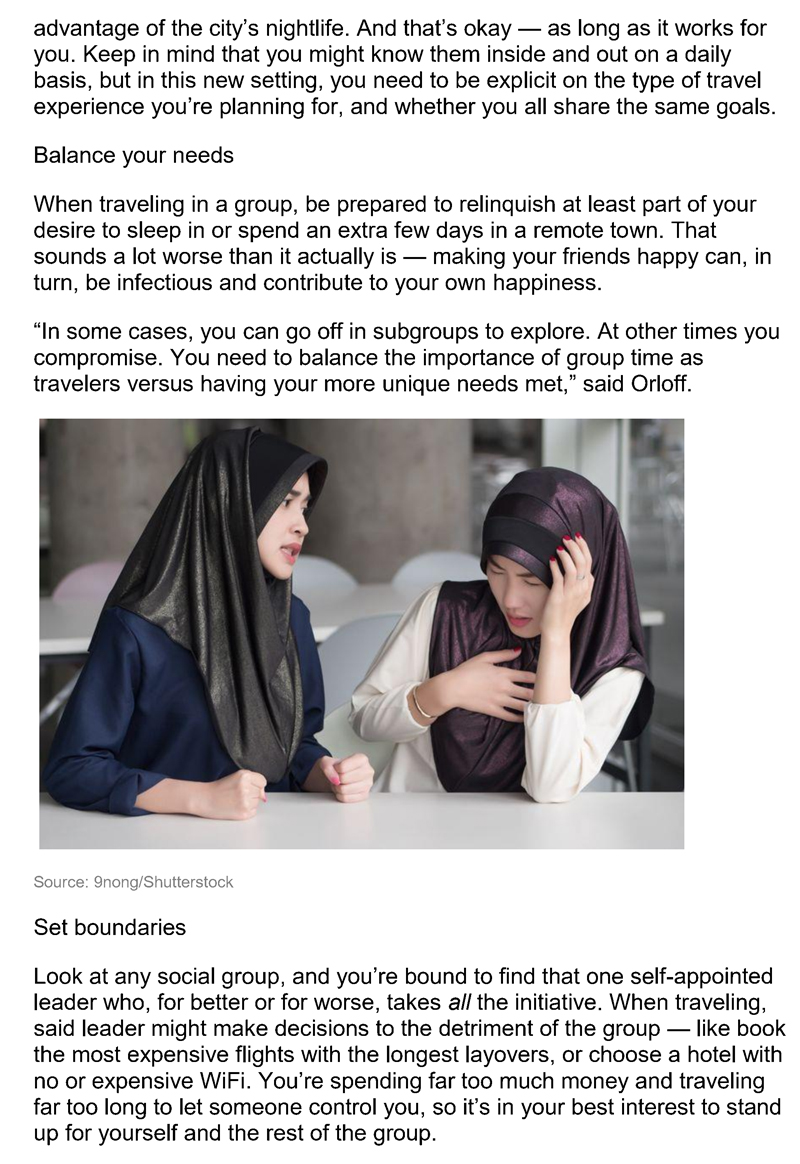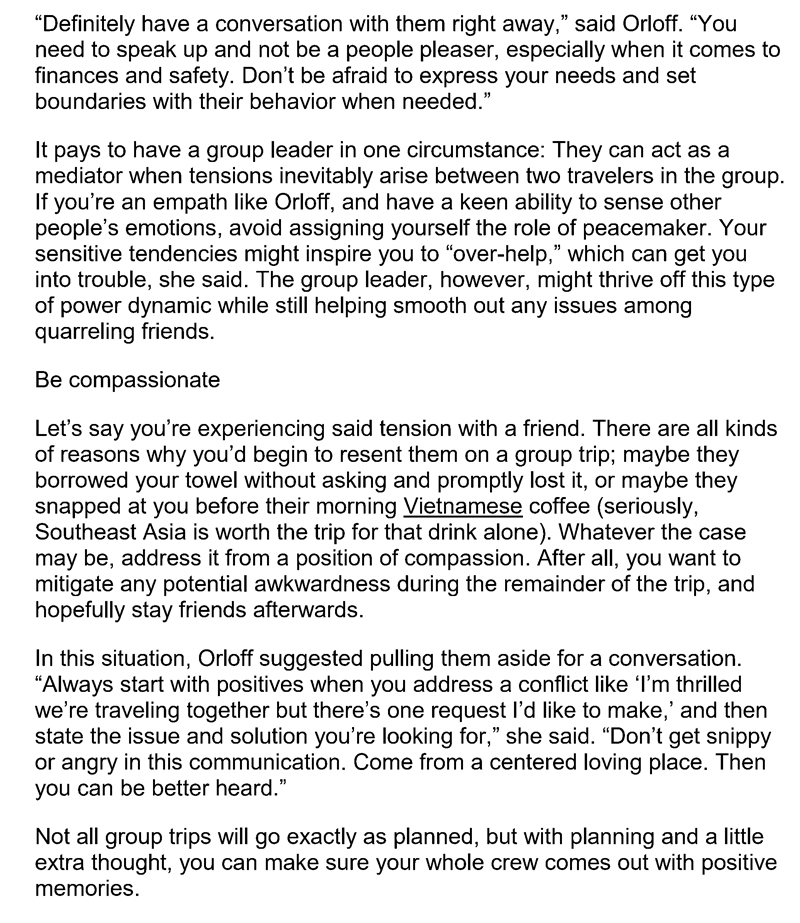


Additional Insights on Relationship Tips for Sensitive People
In my books, “The Empath’s Survival Guide” and “Emotional Freedom” I describe emotional empaths as a species unto themselves. Whereas others may thrive on the togetherness of being a couple, for empaths like me, too much togetherness can be difficult, may cause us to bolt. Why? We tend to intuit and absorb our partner’s energy, and become overloaded, anxious, or exhausted when we don’t have time to decompress in our own space. We’re super-responders; our sensory experience of relationship is the equivalent of feeling objects with 50 fingers instead of five. Energetically sensitive people unknowingly avoid romantic partnership because deep down they’re afraid of getting engulfed. Or else, they feel engulfed when coupled, a nerve-wracking, constrictive way to live. If this isn’t understood, empaths can stay perpetually lonely. We want companionship, but, paradoxically, it doesn’t feel safe.
For emotional empaths to be at ease in a relationship, the traditional paradigm for coupling must be redefined. Most of all, this means asserting your personal space needs — the physical and time limits you set with someone so you don’t feel they’re on top of you. Empaths can’t fully experience emotional freedom with another until they do this. Your space needs can vary with your situation, upbringing, and culture. My ideal distance to keep in public is at least an arm’s length. In doctors’ waiting rooms I’ll pile my purse and folders on the seats beside me to keep others away.
With friends it’s about half that. With a mate it’s variable. Sometimes it’s rapture being wrapped in his arms; later I may need to be in a room of my own, shut away. One boyfriend who truly grasped the concept got me a “Keep Out” sign for my study door! For me, this was a sign of true love. All of us have an invisible energetic border that sets a comfort level. Identifying and communicating yours will prevent you from being bled dry by others. Then intimacy can flourish, even if you’ve felt suffocated before. Prospective mates or family members may seem like emotional vampires when you don’t know how to broach the issue of personal space. You may need to educate others — make clear that this isn’t about not loving them — but get the discussion going. Once you can, you’re able to build progressive relationships.


